Abstract
Pigeons were trained to key-peck for food, first with single-stimulus training and then with successive discrimination (multiple schedule) training. In the multiple schedule, two different wavelengths were each correlated with equally frequent variable-interval reinforcement but different durations (6 sec vs. 2 sec) of access to grain. For some birds, the different durations of feeding cycle were cued by different intensities of the food hopper light. For some of these “cued” birds, single-stimulus training had been carried out with 6-sec feedings and when multiple-schedule training was introduced, the novel stimulus was correlated with 2-sec feedings. For the others, 2-sec feedings were originally used, and the novel stimulus was then present during the 6-sec reinforcement duration. The cueing procedure enhanced discrimination performance, and was necessary for the consistent production of a peak shift. In addition, the condition in which original training had been carried out with 6-sec feedings, and thus reinforcement duration was reduced in the presence of the novel stimulus, led to the best performance.
Full text
PDF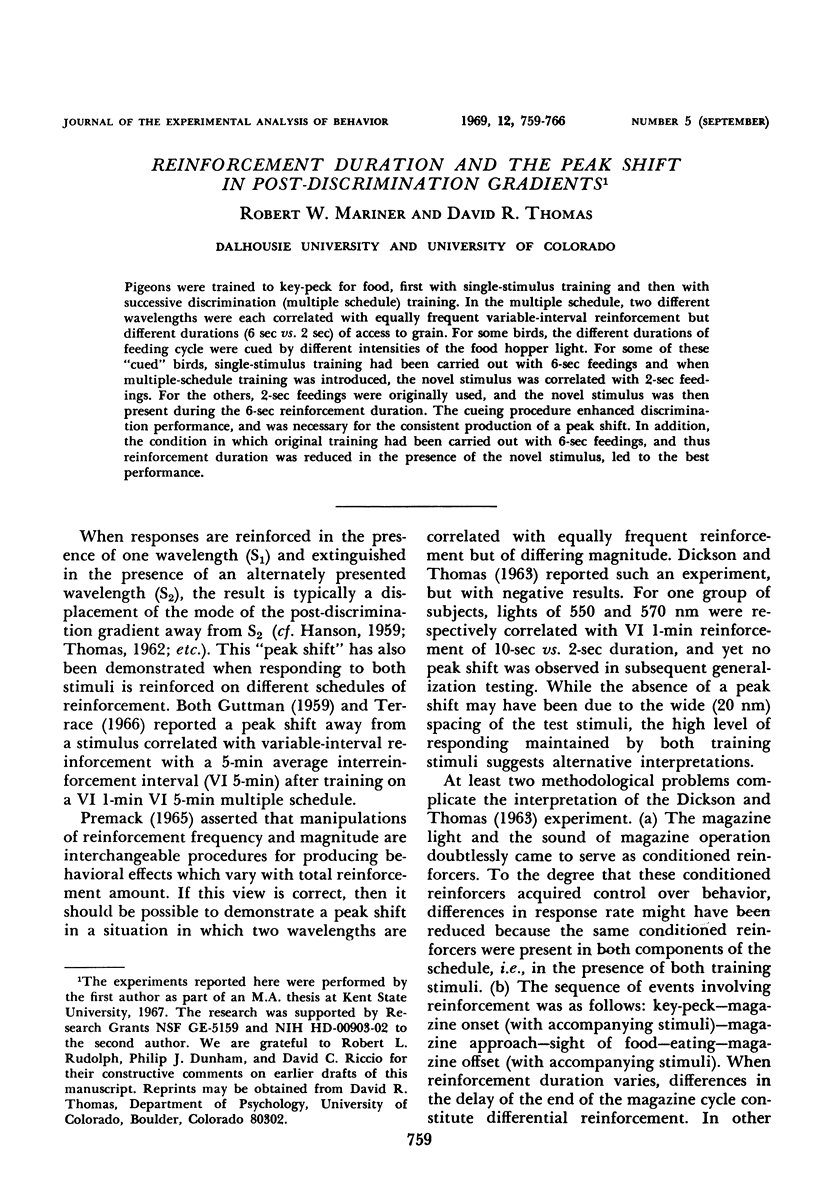
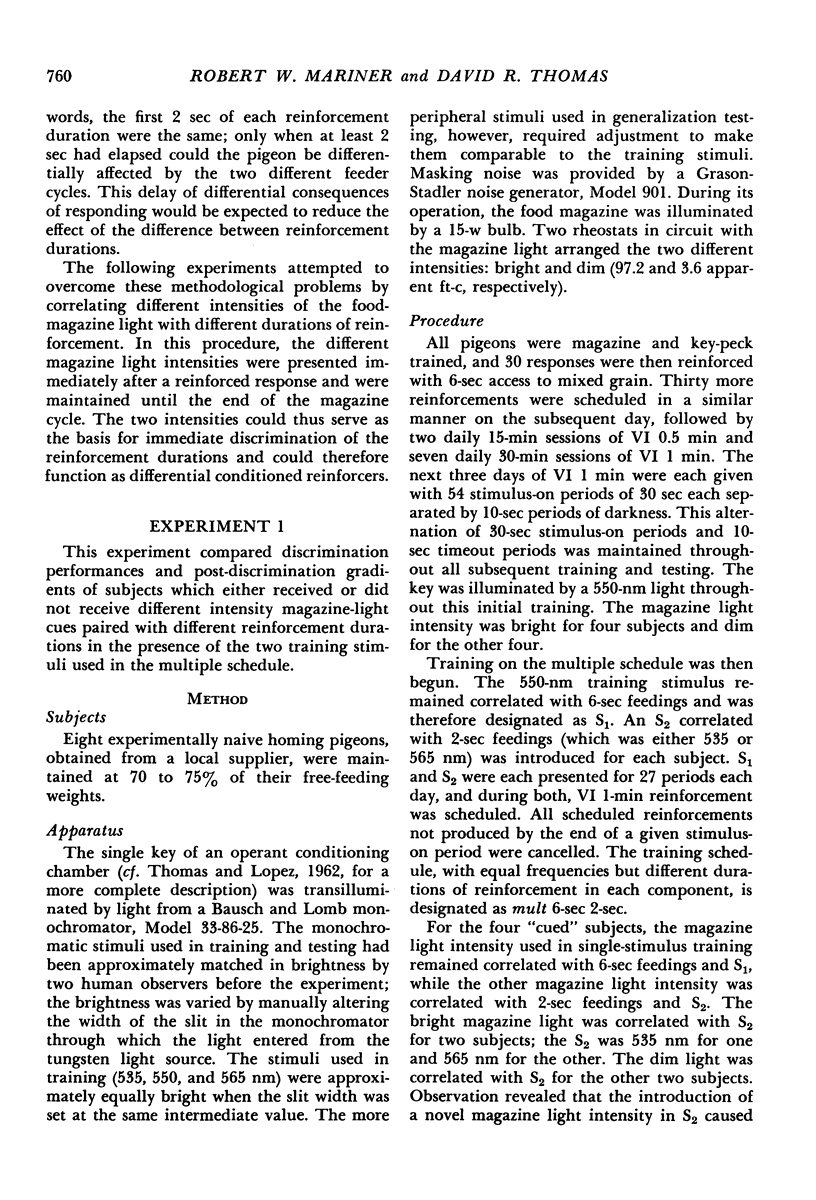
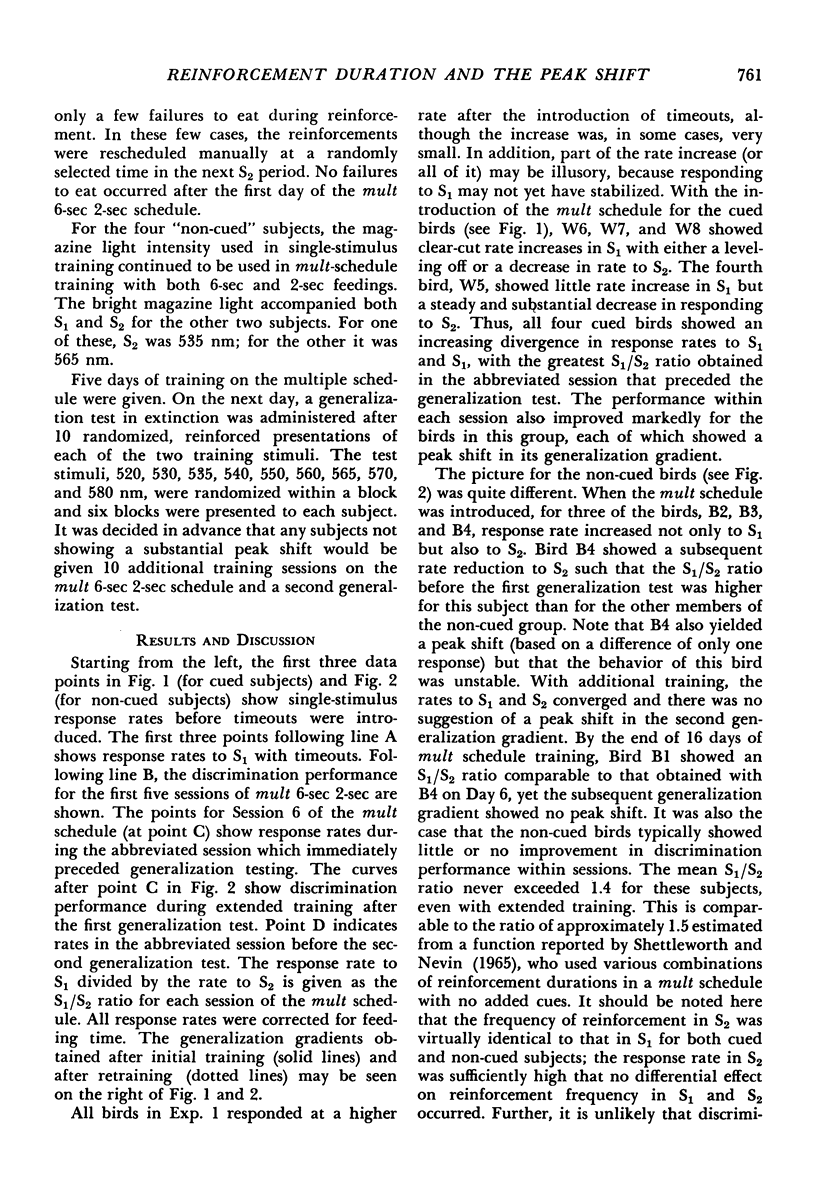
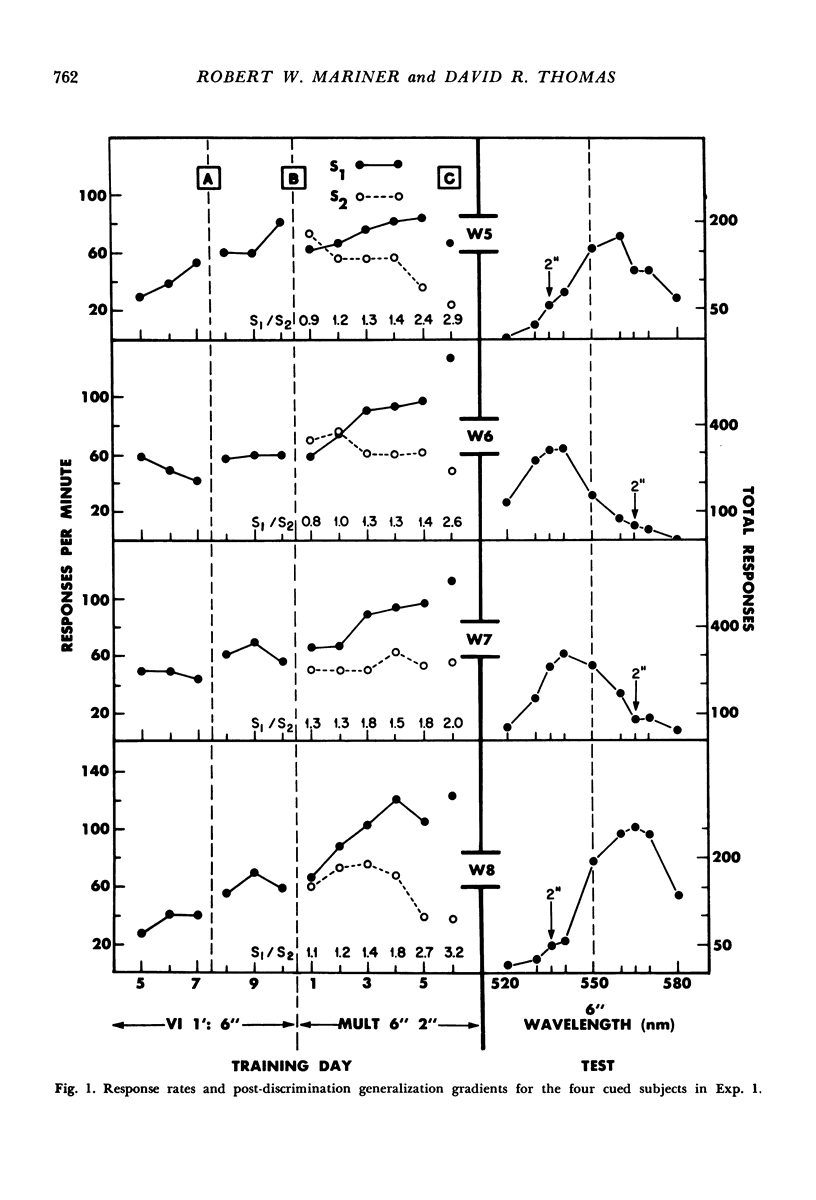
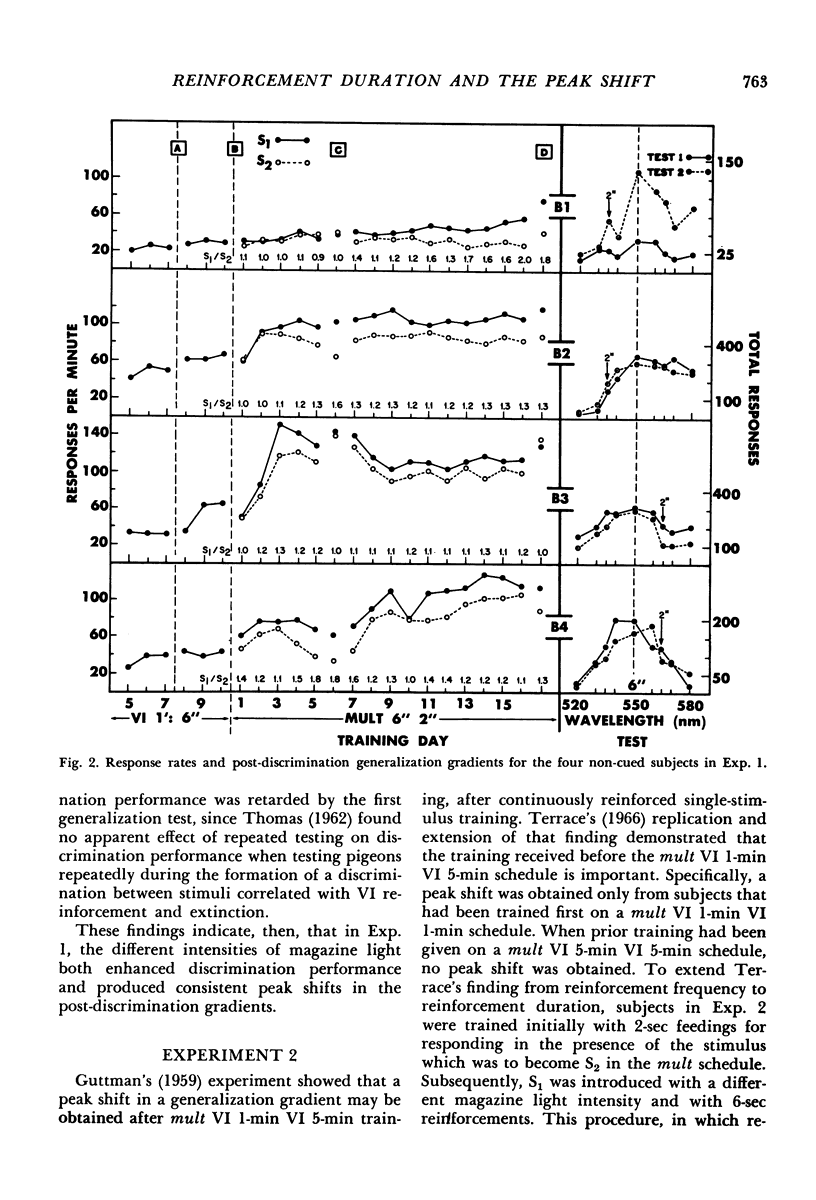
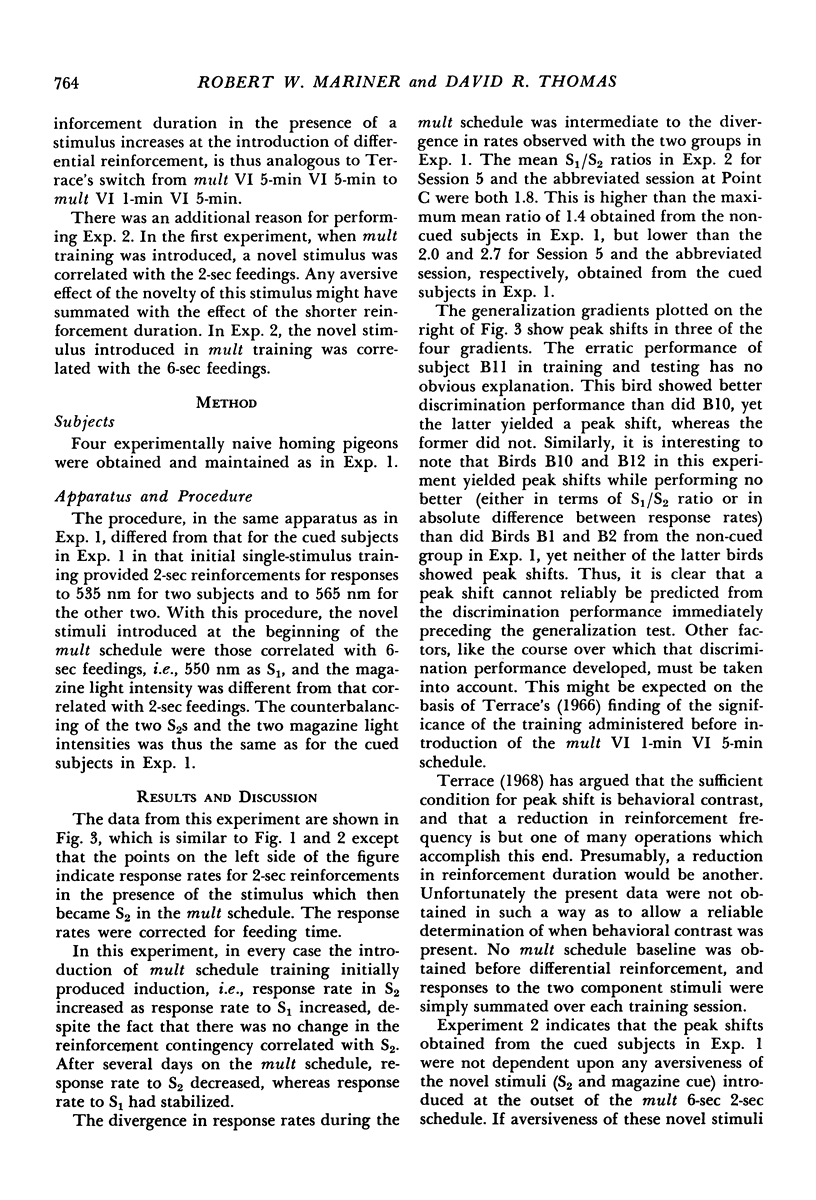
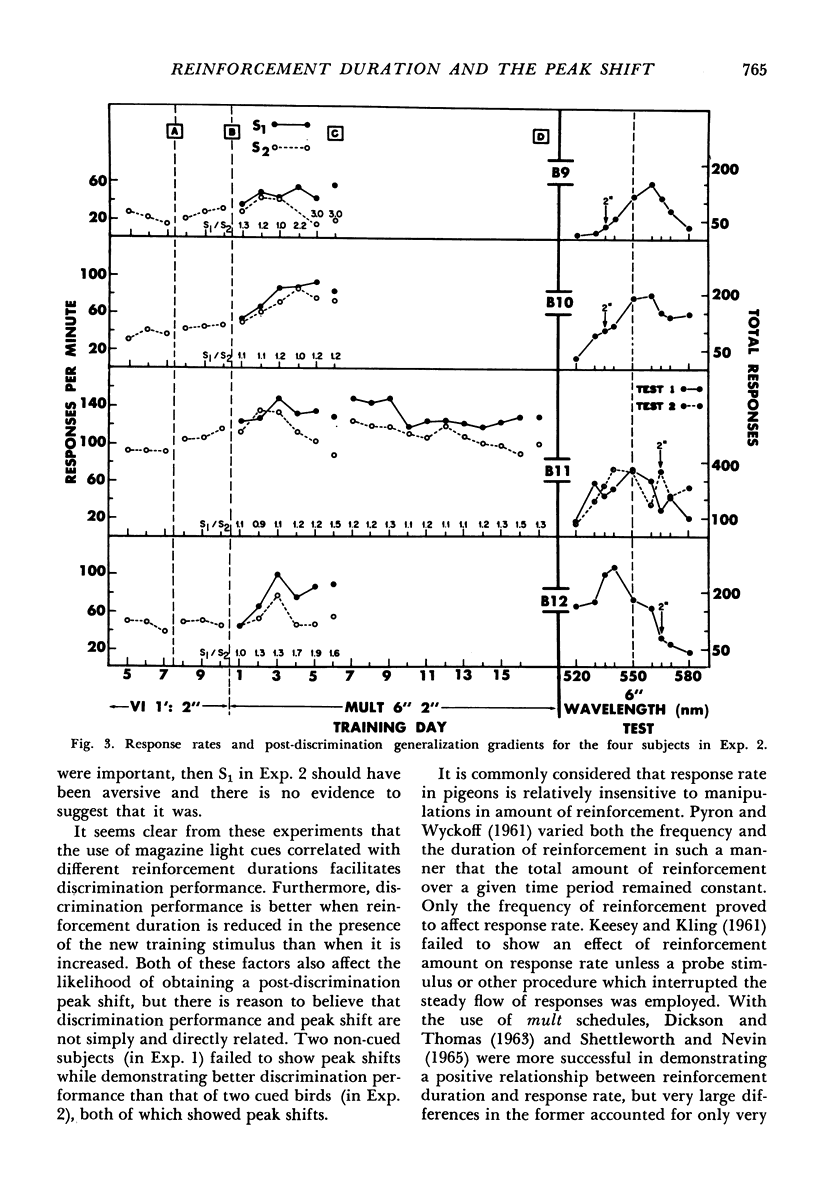
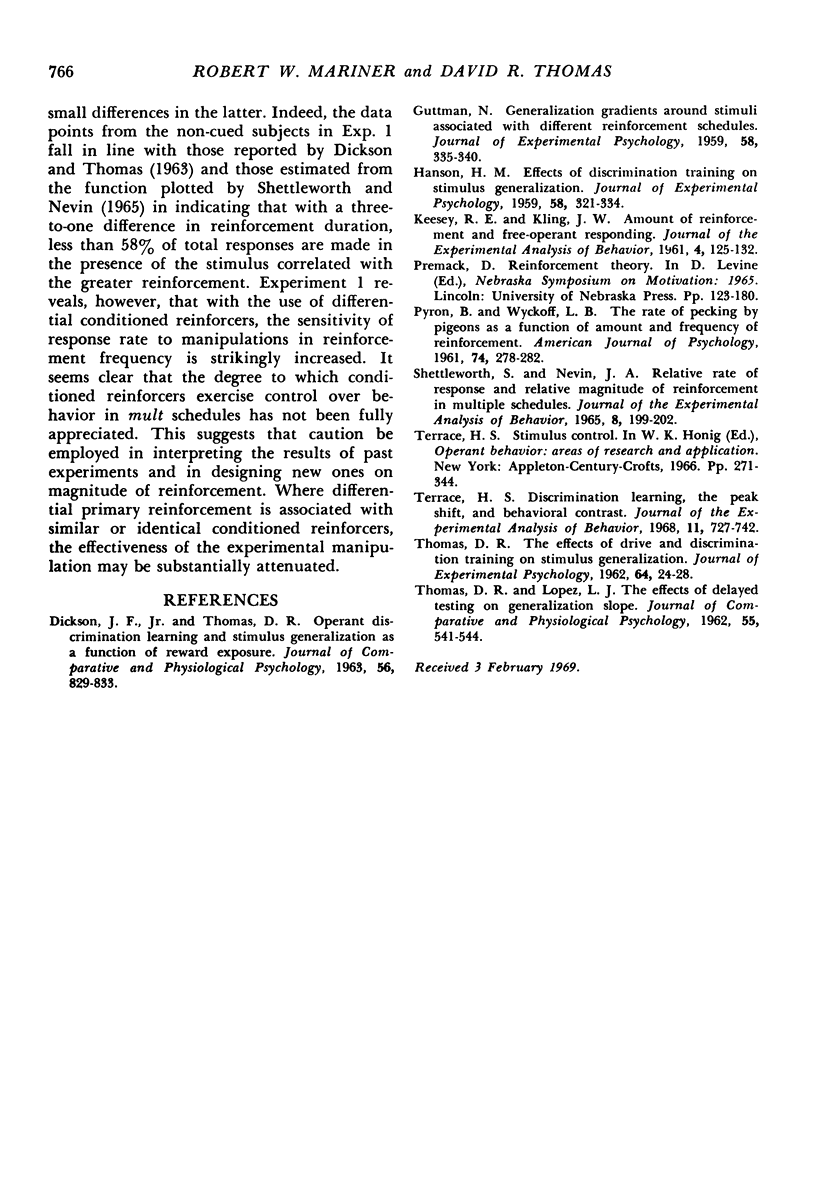
Selected References
These references are in PubMed. This may not be the complete list of references from this article.
- DICKSON J. F., Jr, THOMAS D. R. OPERANT DISCRIMINATION LEARNING AND STIMULUS GENERALIZATION AS A FUNCTION OF REWARD EXPOSURE. J Comp Physiol Psychol. 1963 Oct;56:829–833. doi: 10.1037/h0045066. [DOI] [PubMed] [Google Scholar]
- GUTTMAN N. Generalization gradients around stimuli associated with different reinforcement schedules. J Exp Psychol. 1959 Nov;58:335–340. doi: 10.1037/h0045679. [DOI] [PubMed] [Google Scholar]
- HANSON H. M. Effects of discrimination training on stimulus generalization. J Exp Psychol. 1959 Nov;58:321–334. doi: 10.1037/h0042606. [DOI] [PubMed] [Google Scholar]
- KEESEY R. E., KLING J. W. Amount of reinforcement and free-operant responding. J Exp Anal Behav. 1961 Apr;4:125–132. doi: 10.1901/jeab.1961.4-125. [DOI] [PMC free article] [PubMed] [Google Scholar]
- PYRON B., WYCKOFF L. B. The rate of pecking by pigeons as a function of amount and frequency of reinforcement. Am J Psychol. 1961 Jun;74:278–282. [PubMed] [Google Scholar]
- SHETTLEWORTH S., NEVIN J. A. RELATIVE RATE OF RESPONSE AND RELATIVE MAGNITUDE OF REINFORCEMENT IN MULTIPLE SCHEDULES. J Exp Anal Behav. 1965 Jul;8:199–202. doi: 10.1901/jeab.1965.8-199. [DOI] [PMC free article] [PubMed] [Google Scholar]
- THOMAS D. R., LOPEZ L. J. The effects of delayed testing on generalization slope. J Comp Physiol Psychol. 1962 Aug;55:541–544. doi: 10.1037/h0046103. [DOI] [PubMed] [Google Scholar]
- THOMAS D. R. The effects of drive and discrimination training on stimulus generalization. J Exp Psychol. 1962 Jul;64:24–28. doi: 10.1037/h0047080. [DOI] [PubMed] [Google Scholar]
- Terrace H. S. Discrimination learning, the peak shift, and behavioral contrast. J Exp Anal Behav. 1968 Nov;11(6):727–741. doi: 10.1901/jeab.1968.11-727. [DOI] [PMC free article] [PubMed] [Google Scholar]


